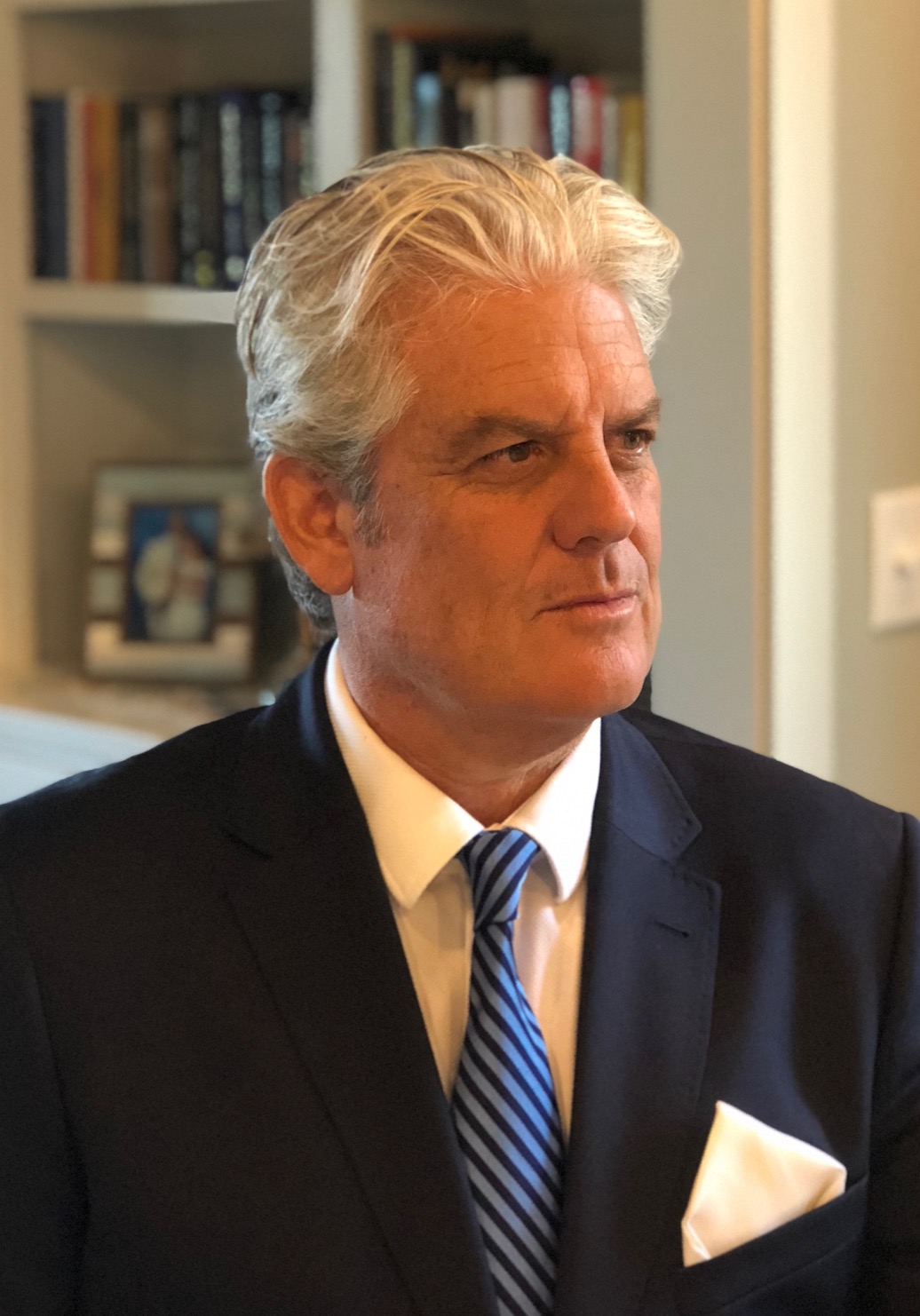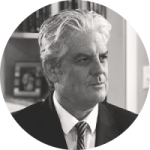From the CEO – January 2019
Dear Clients,

Chief Executive
The early weeks of 2019 have not disappointed anyone with expectations that the already high levels of political and country risk around the globe would continue. Needless to say, our models are working ‘over-time,’ and the multitude of insights and forecasts they are providing to our clients are unequaled in our firm’s history.
Speaking of longevity, this year marks PRS’ 40th anniversary atop the field of quant-driven political and country risk assessment and forecasting. Over the years our clientele has grown to include the world’s largest institutional investors, sovereign wealth funds, central banks, and private equity and hedge funds. We’ve also signed a multi-year deal with the world’s most expansive provider of business information, and worked closely with a range of governments and anti-corruption groups to improve their business climates.
As part of our anniversary, PRS will be unveiling a range of new products and services that will provide an even higher level of service to our clientele. Chief among them will be a proprietary platform from which our clients will be able to use our data against a series of artificial intelligence/machine learning. As most of you will know, our data have been back-tested through a variety of IBM Watson and related programs and the results were outstanding.
Additionally, we will also be unveiling a preferred client service that will provide clients with early monthly data releases and include some of PRS’ related products on a client-driven basis. This will have the benefit of providing a unique experience for our clients and allow them to shift between our product menu as their needs dictate.
Turning to the political risk world, Venezuela – which has been in the “High Risk” category for political risk since 2001 – has pretty much come undone as the US and other Western countries have recognized an opposition leader, Juan Guaidó, as the country’s interim president. The move is designed, frankly, to force a slow coup against President Maduro. The level of violence, protests, and deaths that have risen since the recognition of Guaidó (who happens to be in hiding until the military can be brought onside and support the new political configuration) is significant, and the socio-economic conditions in the country really couldn’t be much worse.
Complicating matters, the final week of January began with the US placing additional sanctions on PdVsa, the state-run oil company. According to US sources, the sanctions amount to some $7 billion in assets being blocked and over $11 billion in lost export proceeds over the next year. The move will affect Venezuela’s ability to repay its debt obligations. Russia, for one, has made it clear that it fully expects the repayments to remain on schedule.
As is usually the case, our predictive models were spot on. In July of 2018, we noted in our Venezuela country report to clients:
“…it is increasingly apparent that [Maduro’s] chances of remaining in power for the next 18 months, let alone for the next six years, hinge on his ability to retain the support of the top leadership of the armed forces. The danger for Maduro is that the empowered leaders of the military might decide that they no longer need the president or, even worse for Maduro, that he has become a liability.”
On the external debt issue – and its implications – we also wrote at the time:
“…the government [has] halted nearly all payments on foreign debt, and…Venezuela [is] in default on nearly two-thirds of its total debt load of some $60 billion in direct and subsidiary foreign bonds. Unfortunately, the government’s options are limited. The US sanctions rule out both the restructuring of existing debt and the extension of assistance from the IMF and other multilateral agencies, and, given the outlook for oil production, not even a steep rise in crude prices would be sufficient to stave off a debt-related catastrophe.”
So far Russia and China have condemned the US actions, with Russia suggesting Washington is backing a coup attempt in the country. Both countries blocked a US effort for a UN Security Council resolution supporting the National Assembly as the “only democratically elected institution.” Interestingly, there are reports that Russia has sent private military contractors to protect Maduro from a coup.
Almost depressing given the severity of the situation, the EU, for its part, has called on Maduro to call fresh elections within a week – a request that one Venezuelan official described as almost “child-like” in its approach.
Some of the talking heads in the press have suggested that Russia or China might come to Maduro’s assistance and provide a kind of financial rescue package. The insight is questionable. The odds of Russia doing such a thing are about 25%. President Putin will clearly offer continued moral support to the Maduro regime, but Moscow is really not in a position to provide the resources required to anything more than temporarily keep the Venezuelan economy afloat. Cuba is also seeking Russia’s assistance, and that is likely to strike Putin as both a more manageable strategy, and one that will deliver more “bang-for-the-buck” in terms of Russia’s foreign policy interests in the Americas.
China is no better than a 50-50 proposition for some assistance, and any money will be provided with deep reservations. Venezuela is simply a bad investment given the obstacles to rapidly reviving oil production and having been burned somewhat by Moreno’s betrayal of Correismo in Ecuador, the Chinese will think long and hard before throwing money at what is looking more and more like a doomed regime.
Turning to the ICRG ratings for the month, we continue to see some interesting trends developing in the world’s regions.
As I mentioned to several fund managers last month in Naples, parts of Africa represent relatively good value propositions in terms of capital allocation and trends in political risk.
While the election victory of an opposition candidate in the DRC was seen as ‘less-than-credible’ we believe the change in power represents a significant milestone for the country and represents a small building block for improved governance going forward.
On somewhat brighter notes, both Kenya and Cote d’Ivoire had their political risk profiles improve in January on the back of better growth prospects for each country and continued “pro-business” policy stances of their respective government.
Asia continues to be one of the more benign regions in our coverage. Bangladesh’s Awami League secured a landslide victory on December 30th, despite the vote being marred by violence and a state apparatus that worked to stifle dissent in the run-up to the tally. And Indonesia’s currency has recovered some lost ground against the USD, bolstering the country’s foreign exchange reserves, and the election prospects for President Joko Widodo this April have improved as well.
Not surprisingly, the country risk profiles of much of Europe continue to deteriorate as industrial production throughout the euro zone eases. The economies of Germany and Italy have slumped and soon-to-be-released data suggests that both have fallen into “technical recessions.” France’s economy is also weakening, and President Macron continues to suffer in terms of his overall popular support and in realizing his government’s reform agenda in the face of continued protests from the “yellow-jacket” movement.
As always, our data figures prominently in the work of the economic research community. This month the IMF released a Working Paper that drew the linkages between governance, corruption, and growth, using a range of our ICRG data. The piece is similar to other studies on Africa that linked our corruption scores with changes in per capita GDP, this one argues that “moving the average SSA country governance level to the global average could increase the region’s GDP per capita growth by about 1-2 percentage points. (https://lnkd.in/eG4Hnnu).
Finally, as mentioned earlier, watch for a series of weekly video updates in February on the world of political risk, and the planned Fall release of a new book on the future of political risk, with myself (www.christophermckee.net) and Peter Marber (www.petermarber.com) both co-editing the collection of essays and authoring a few chapters. Notably, the book will contain some interviews with key personnel in the political risk, investment and business landscape that cannot be found in any similar publication.
Thanks for your continued support, and please contact us if we can be of any assistance.

Chief Executive

PRS INSIGHTS
Moving beyond current opinions, a seasoned look into the most pressing issues affecting geopolitical risk today.
EXPLORE INSIGHTS SUBSCRIBE TO INSIGHTS




